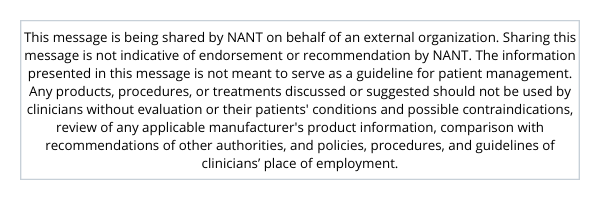When most people hear the words “NICU” or “premature infant” the first pictures that usually come to mind are of tiny infants attached to complicated medical equipment, resulting in lengthy hospitalizations. Does this describe most of the babies in your caseload? Surprisingly, 75% of US premature infants are considered Late Preterm Infants (LPI) — born between 34 0/7 and 36 6/7 weeks of gestational age.(1) Although late preterm infants are less physiologically mature and are at an increased risk of morbidity and mortality, they are often treated like developmentally mature term infants.(2)
Historically, the phrase used to describe the feeding routine of an LPI, is “just a feeder and a grower.” As NICU therapists, you understand that ‘just a feeder and grower’ is not a professionally recognized or researched term for late preterm infants.
More than one third (32%) of late preterm infants are diagnosed with feeding issues during the birth hospitalization. In fact, up to 75% of these babies require feeding support.(3)
Late preterm infants’ feeding difficulties are related to immaturity of multiple physiological processes including cardiorespiratory instability, metabolic disturbances, immaturity of state regulation, uncoordinated suck, swallow, breathe organization, and decreased oromotor tone.(3)
Clinically, an LPI may present with: (3,4,5)
- Poor arousal for feeds and limited endurance to complete feeds
- Poor suck-swallow-breathe coordination
- Poor oral motor control
- Slow weight gain
- Difficulty sustaining latch at breast
These feeding difficulties delay hospital discharge, and result in poorer rates of breastfeeding initiation and duration compared with term infants. Post discharge, feeding difficulty is the one of the most common causes of readmission of late preterm infants.(3,5) Following discharge, parents of LPI infants report symptoms of oromotor dysfunction and avoidant feeding behavior.(3)
How can you, as a neonatal therapist, better help address the needs of the late-preterm infant in your NICU?
Educate staff on feeding risks for late preterm infants. This may also include staff from other units where late preterm infants are cared for.
Work with your multidisciplinary team to have LPI guidelines and policies. A wonderful resource is the National Perinatal Association.
Seek referrals. Much of the time feeding is the last hurdle infants need to accomplish prior to discharge.Educating parents enhances understanding of what their little ones are tackling behind the facade of appearing like a healthy newborn who seems to only want to sleep. Remind staff and parents to refrain from calling these little ones, “lazy.”
Even if the infant seems to be feeding well, educate parents on the risk for inadequate feeding at home. This is very important given the high re-admission rate of LPIs. Teach parents how to recognize feeding cues. Educate mom on signs of adequate latch and milk transfer. Promote infant handling techniques and optimal posture for state control. Show the picture of the term infant’s brain versus the current stage of gestation in which the infant was born. Educate on how multiple systems must function together to result in the dynamic rhythm of suck-swallow-breathe coordination. This can be done preventatively and not wait until the infantis struggling to educate parents on the “why” and the risk factors of prematurity.
Assist with a home feeding plan and provide contact information for community breastfeeding support or who to contact if feeding (breast or bottle) is not going well. This population may be an excellent group for an infant feeding diary. If supplementation by bottle is desired or required, ensure the bottle choice and flow rate match baby’s skills, and can transition home with the infant. The Dr. Brown’s® Zero-Resistance™ Bottle System with Level T Nipple can be an excellent transition for these infants.
It’s important to recognize the word “just” does not apply to the NICU. After all, being in a NICU for any amount of time can be “traumatic”. This is true for an infant born at 26 weeks or 36 weeks. Especially for infants separated from mom, whether for a few hours or days, it is traumatic for these tiny infants and their caring families. As neonatal therapists, you can provide support and intervention and hold the belief that no infant is JUST A FEEDER AND A GROWER.
View References here.



